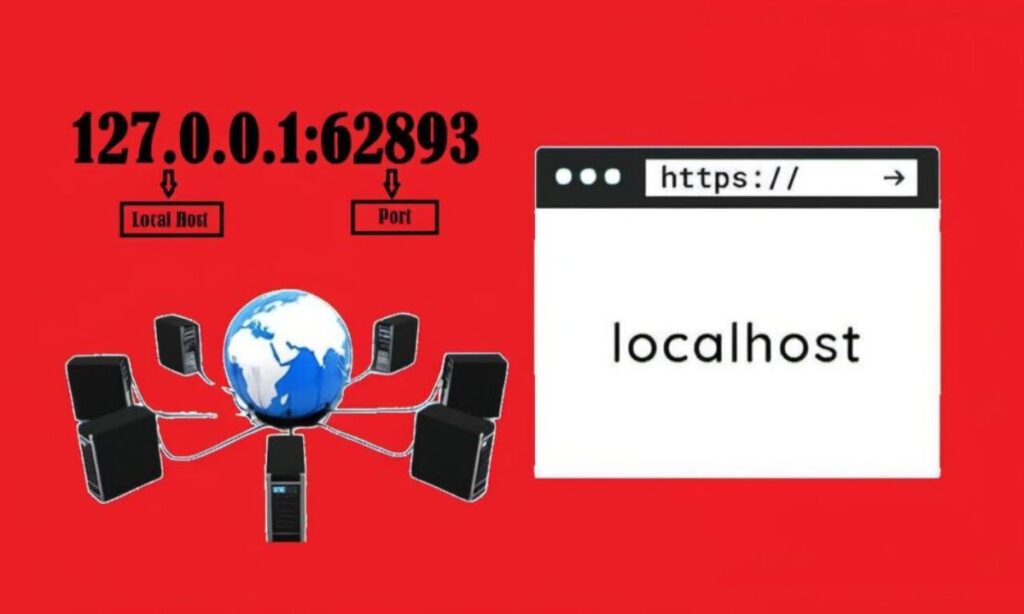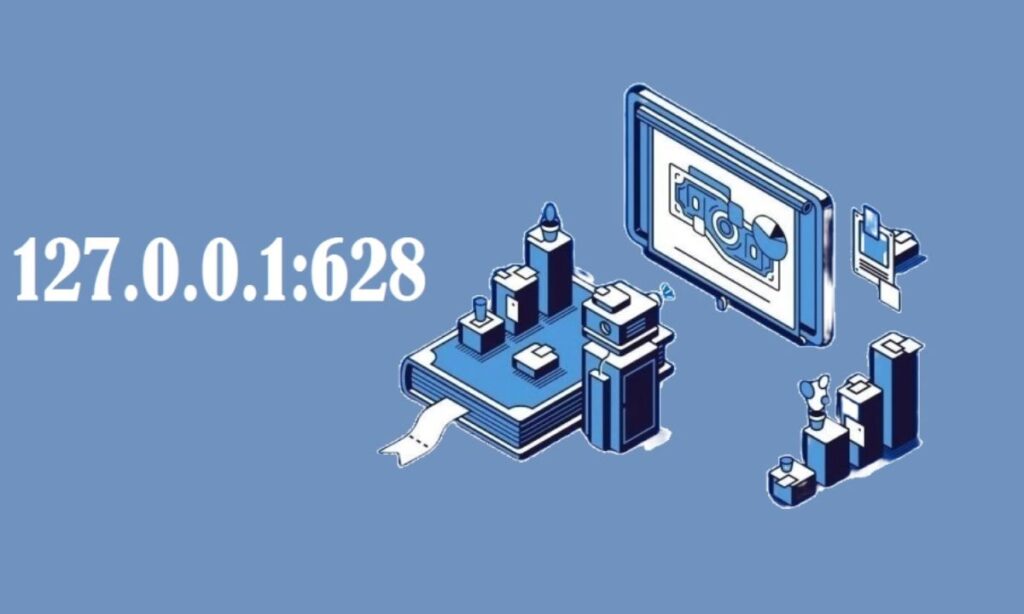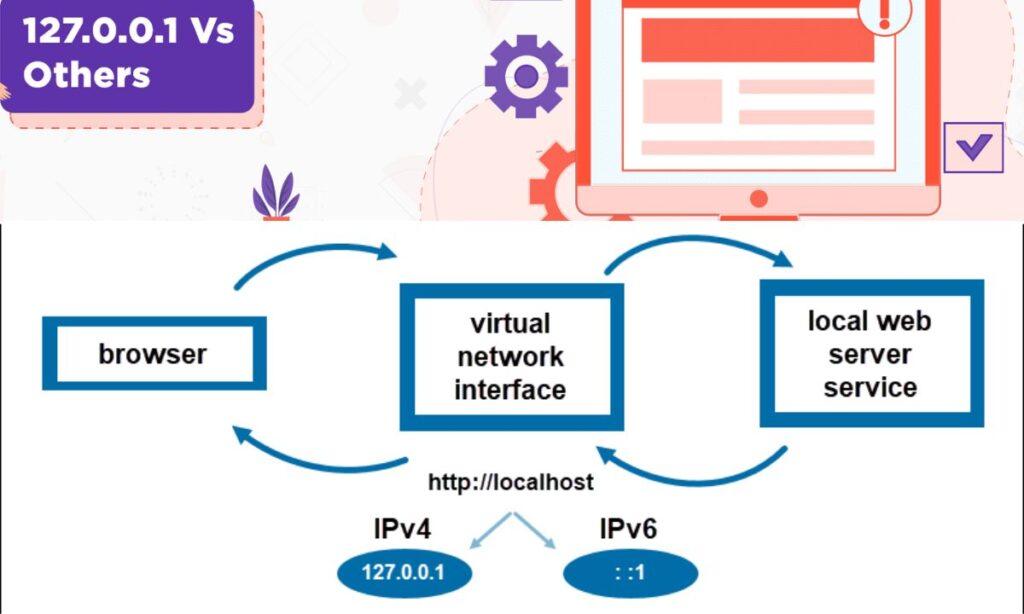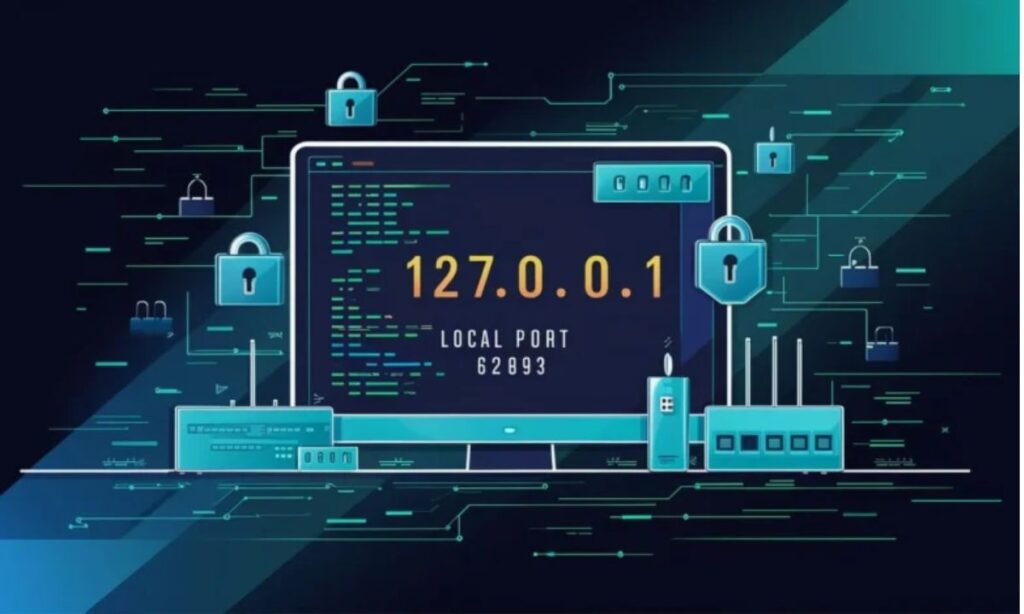The internet can seem complex, but some concepts are simple. One of these is 127.0.0.1:62893. This article will explain what it is and why it matters. Understanding this can enhance your experience with technology. Let’s dive in!
What is 127.0.0.1?
127.0.0.1 is known as “localhost.” It acts as your computer’s home address in networking. When you use it, you’re telling your computer to connect to itself. This is useful for testing and development. Think of it like talking to yourself in a private room.
Using 127.0.0.1 allows you to run applications without going online. This isolation is valuable for developers. It creates a safe space to experiment without risks. You can test software and websites locally. This helps catch problems before they go live.
Benefits of Using 127.0.0.1
- Safety: Test applications without exposing them to the internet.
- Speed: Access local resources quickly.
- Control: Manage your testing environment easily.
The Role of 62893: Understanding Ports

Now, let’s discuss 62893. This number is a port. In networking, a port is like a door. It directs traffic to specific services or applications. Your computer has many ports for different functions.
When you see 127.0.0.1:62893, you’re using the localhost address with a specific port. This means you are connecting to your computer through the 62893 door. Different applications use different ports. For example, web traffic typically uses ports 80 or 443.
Common Ports
Here are some common ports and their uses:
| Port Number | Use |
| 80 | HTTP traffic |
| 443 | HTTPS traffic |
| 3306 | MySQL database access |
| 5432 | PostgreSQL database access |
| 62893 | Custom applications or services |
Why 127.0.0.1:62893 Matters?
Understanding 127.0.0.1:62893 is crucial for several reasons. First, it provides a local testing environment. Developers can experiment without risks. This is essential for creating reliable software.
Second, it helps in troubleshooting. If you encounter issues with an application, using localhost can help isolate the problem. This way, you can debug without affecting live systems.
Lastly, it offers flexibility. Many applications allow you to configure them to run on specific ports. This customization can enhance your workflow.
How to Use 127.0.0.1:62893 in Practice?
Using 127.0.0.1:62893 is straightforward. Here’s how to do it:
- Set Up Local Server: If you are a developer, install a local server like XAMPP or WAMP.
- Configure Applications: Change application settings to use 127.0.0.1:62893. This ensures they connect correctly.
- Test Your Work: Open a browser and enter http://127.0.0.1:62893. This will direct you to your application.
Even non-developers might encounter this address. Some applications, like database tools, use it to connect locally. Understanding how to navigate this can improve your troubleshooting skills.
Read This Blog: Halo (2003) Game Icons Banners: Shaping a Sci-Fi Legacy
Common Applications of 127.0.0.1:62893

You will find 127.0.0.1:62893 used in many scenarios:
- Web Development: Developers test websites using localhost before going live.
- Database Management: Tools like MySQL use localhost for database access.
- Gaming: Multiplayer games often set up local servers on this address.
- Software Testing: QA teams use it to test new features securely.
These applications highlight the versatility of 127.0.0.1:62893. It serves a critical role in various tech fields.
Troubleshooting Issues with 127.0.0.1:62893
While using 127.0.0.1:62893 is usually straightforward, you may face some issues. Here are common problems and solutions:
Port Conflicts
If another application uses port 62893, you will get an error. Change the port in your application settings to resolve this.
Firewall Blockage
Sometimes, your firewall may block connections to 127.0.0.1:62893. You can fix this by adding an exception in your firewall settings.
Configuration Errors
If things aren’t working as expected, check your configuration files. A typo can cause issues. Double-check all settings to ensure accuracy.
Troubleshooting can feel challenging, but you can solve most problems with patience and knowledge.
Security Considerations
Using 127.0.0.1:62893 is generally safe. It limits communication to your local machine. However, there are security measures to keep in mind:
- Limit Access: Ensure only trusted applications can access your local services.
- Use Strong Passwords: If your application requires authentication, use strong, unique passwords.
- Regular Updates: Keep your software updated to avoid vulnerabilities.
By following these precautions, you can maintain a secure local environment.
Also Read This Blog: Neon:uiqmm8ciuj4= Lamborghini: A New Era Of Luxury
Comparing 127.0.0.1 with Other IP Addresses

127.0.0.1 is unique but part of a larger family of IP addresses. Here’s how it compares to others:
- 192.168.0.1: Often used for local networks, like home routers.
- 0.0.0.0: Represents all available IP addresses on a machine.
- 8.8.8.8: A public DNS server by Google, used for resolving domain names.
Each IP address serves a specific purpose, but 127.0.0.1 is vital for local development.
The Future of Localhost and Ports
The role of localhost addresses like 127.0.0.1 will continue to be important. As technology evolves, new methods of development may arise. However, the need for secure testing environments will persist.
Trends like cloud computing and containerization are changing workflows. Yet, understanding the basics of localhost remains crucial. Whether using 127.0.0.1:62893 or another address, the principles apply.
Frequently Asked Questions
What does 127.0.0.1:62893 represent?
127.0.0.1 is your computer’s local address, while 62893 is a specific port number for applications.
How can I find out which ports are in use on my computer?
Use tools like netstat on Windows or lsof on Linux/Mac to check active ports.
Can I change the port number from 62893 to something else?
Yes, you can change the port number in your application settings if needed.
Is 127.0.0.1:62893 safe to use?
Yes, it is safe as it restricts traffic to your local machine, reducing external risks.
Why do developers use 127.0.0.1:62893?
Developers use it to create a secure testing environment for applications without affecting live systems.
Final Thoughts
Understanding 127.0.0.1:62893 unlocks many possibilities in computing. It’s a powerful tool for developers and everyday users alike. Knowing how to use it enhances your control over your digital environment. Next time you see 127.0.0.1:62893, remember that it’s not just a string of numbers. It’s your gateway to a safer, more efficient computing experience.
Tech innovator and digital explorer Ellia leads TechSloby, bringing cutting-edge insights to fellow enthusiasts. With a passion for demystifying complex tech concepts, she bridges the gap between innovation and understanding.



